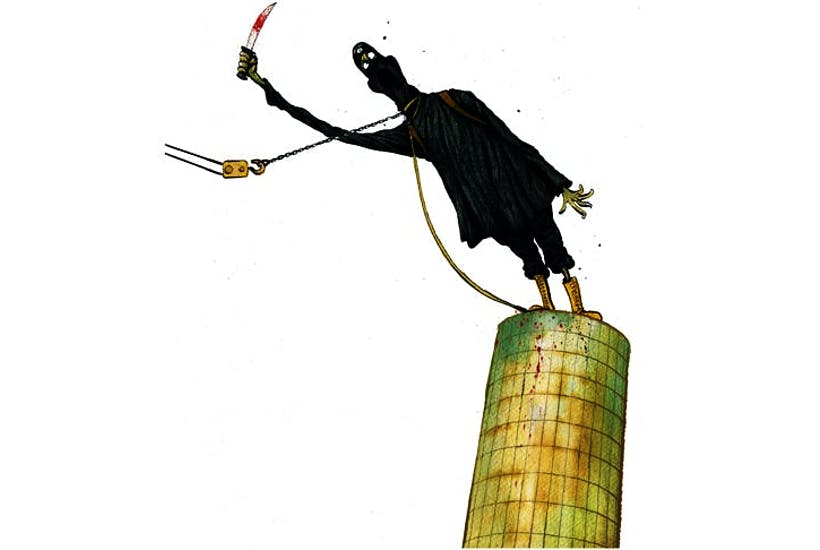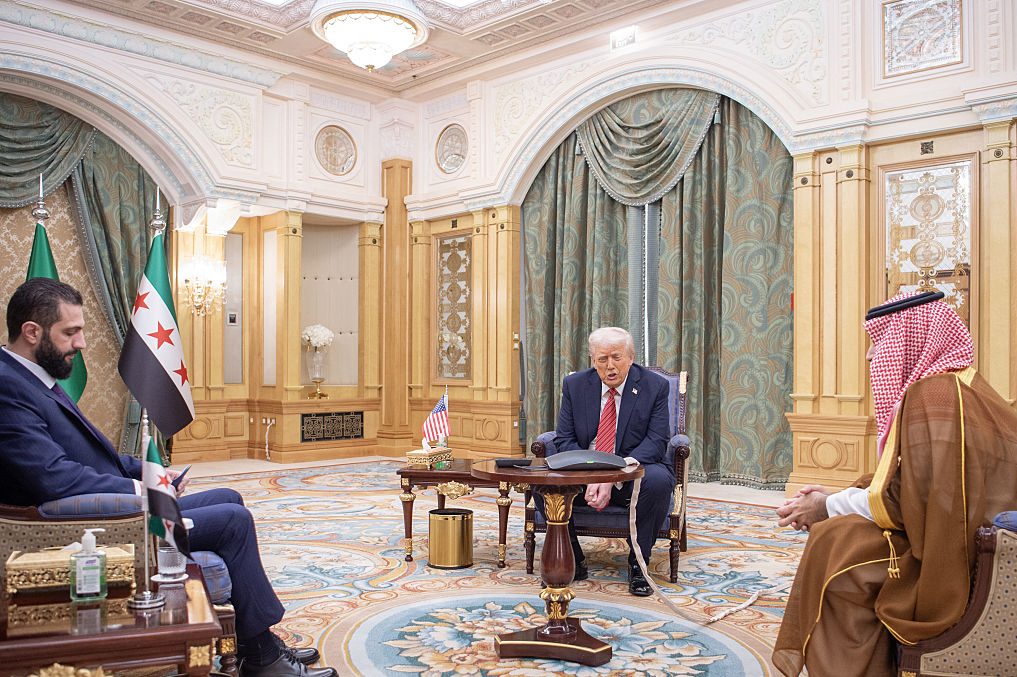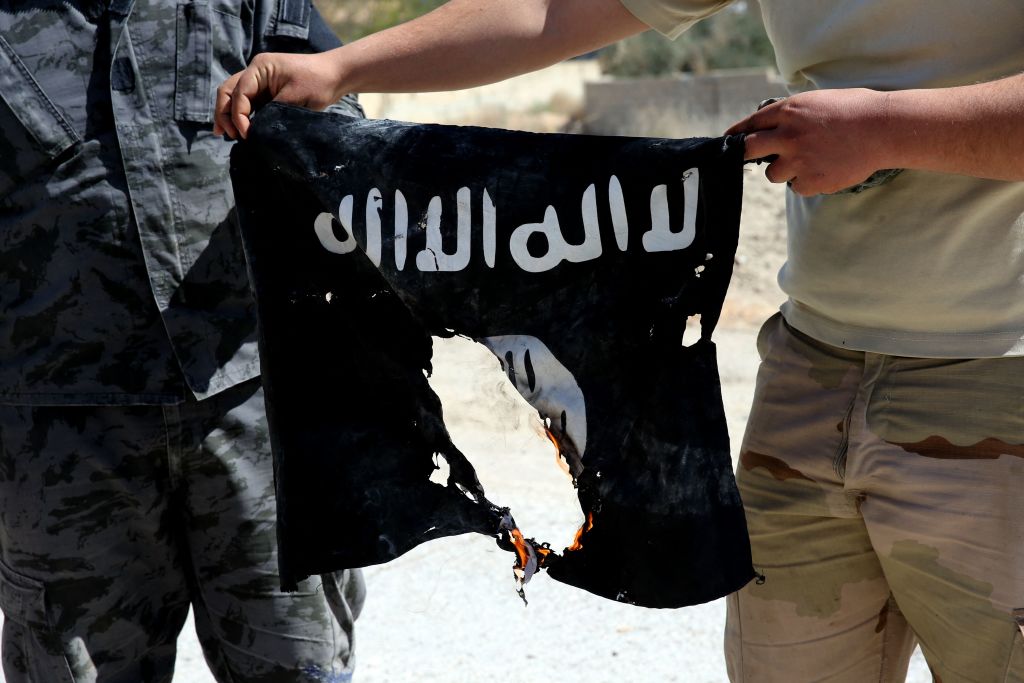The days of black-clad militants rampaging through cities, parading captives as war trophies and doing wheelies in US-made Humvees are over. The Islamic State – which once presided over eight million people in a reign of terror across territory as large as the United Kingdom – is now confined to an orchard in the dusty Syrian village of Baghouz. The so-called caliphate is now just 700 square meters. Within days— certainly weeks —all of Isis’s territory will be retaken, the stragglers either killed in a barrage of US airstrikes or sent to Syrian Kurdish-run prison camps to the north. The demise of the caliphate, however, has given way to a new question: what to do with Isis foreign fighters? Donald Trump’s answer is to make sure that Europe pulls its weight.
If Trump had his way, all of these European fighters would be rounded up and flown back to where they came from, prosecuted, convicted and locked up. In a tweet this week, Trump wrote:
‘The United States is asking Britain, France, Germany and other European allies to take back over 800 Isis fighters that we captured in Syria and put them on trial.’
The only other option, according to Trump, is to release fighters, allowing them to seep back into Europe and pose a security threat to the continent. ‘We [the US] do so much, and spend so much – Time for others to step up and do the job that they are so capable of doing,’ Trump wrote.
This is Trump’s diplomatic way of telling the Europeans to man up and take responsibility for their own miscreants. European governments understand precisely what the Americans would like them to do. And yet despite the tweeting and the vocal gusts blowing from the other side of the Atlantic, Europe is at a loss over what to do about this looming problem.
France, the source of the largest number of European Isis fighters (nearly 2,000, compared to the 120 that came from the US), would rather the Syrians and Iraqis handle them — either by locking them up far away from home or even killing them on the battlefield. Germany is reluctant to take its citizens back because the judicial authorities may not have enough evidence to prosecute them in a court of law. As German foreign minister Heiko Maas told said this week, letting German members of Isis back into Germany ‘is certainly not as easy as they think in America.’ The issue will only become more desperate the longer it drags on. As the controversy over 19-year old British Isis wife Shamima Begum shows, there are no easy answers.
In Trump’s mind, none of this matters. In fact, all of it is irrelevant. The president, already fed up with the Europeans over trade relations, the Iran nuclear deal, defense spending, the Nord Stream II pipeline, the Israeli-Palestinian peace process, and multilateralism, is in no mood to coddle. European leaders may be frightened to let these bad apples back into their societies, but the Trump administration sees repatriation as the most common-sense solution. If the US can successfully throw the book at American Isis sympathizers, the thinking goes, surely European courts can do the same thing? The fact that the US, British, French, German, Belgian, and Swedish justice systems all have different rules and regulations doesn’t matter to Trump. For the White House, European trepidation about taking custody of its citizens and concern about standards of evidence are merely excuses to force others to take care of a European problem. Just as Washington has had to beg most of Europe to increase its contributions to Nato and accept more responsibility for its own national defense, the US is now pulling teeth to persuade European governments to manage its own people.
So what will happen to Europe’s returning jihadists? Some who express regret at traveling half-way around the world to fight for and live in what they thought would be an Islamic utopia may be placed in rehabilitation programs with full monitoring of the state. The more hard-core and unrepentant will be charged. While the French are infamous for being stubborn and holding out to the last minute, the Macron government is likely to eventually agree to a repatriation of a portion of its citizens. While Britain might like to strip each and every single British Isis fighter of their citizenship in order to prevent them from coming home, it’s hard to see Theresa May’s government standing up to Trump’s demands for long.
For Trump, this issue is black and white: European officials should be eager to exact judicial retribution on citizens who decided to embrace a terrorist group. One might also think that helping the US by dealing with Isis detainees would be a fast way for Europeans to get into Trump’s good books — faster that is than negotiating a new trade deal or pouring more cash into the military. Unfortunately for Washington, this is not the case. What should be an iconic moment in the total collapse of the territorial caliphate is becoming yet one more friction point between Trump on one side and Europe on the other.
This article was originally published on The Spectator’s UK website.

























